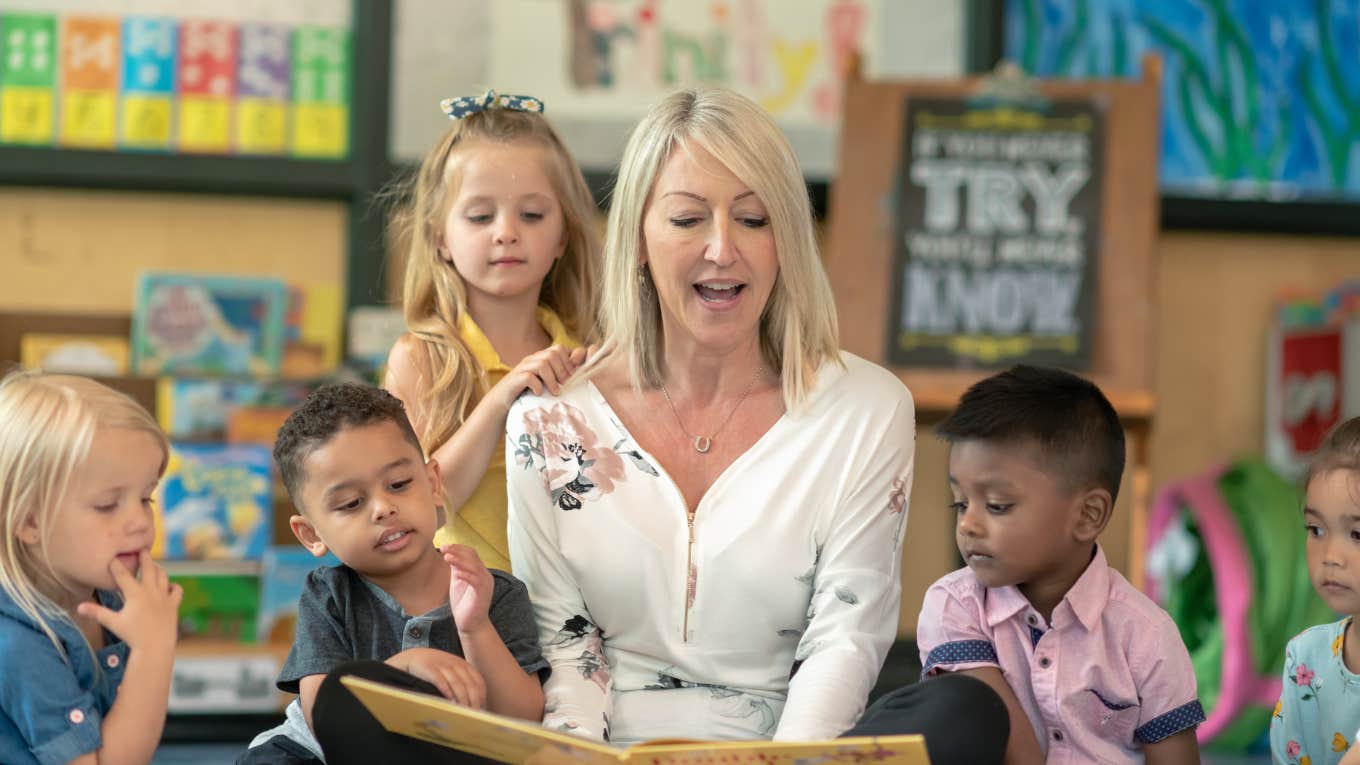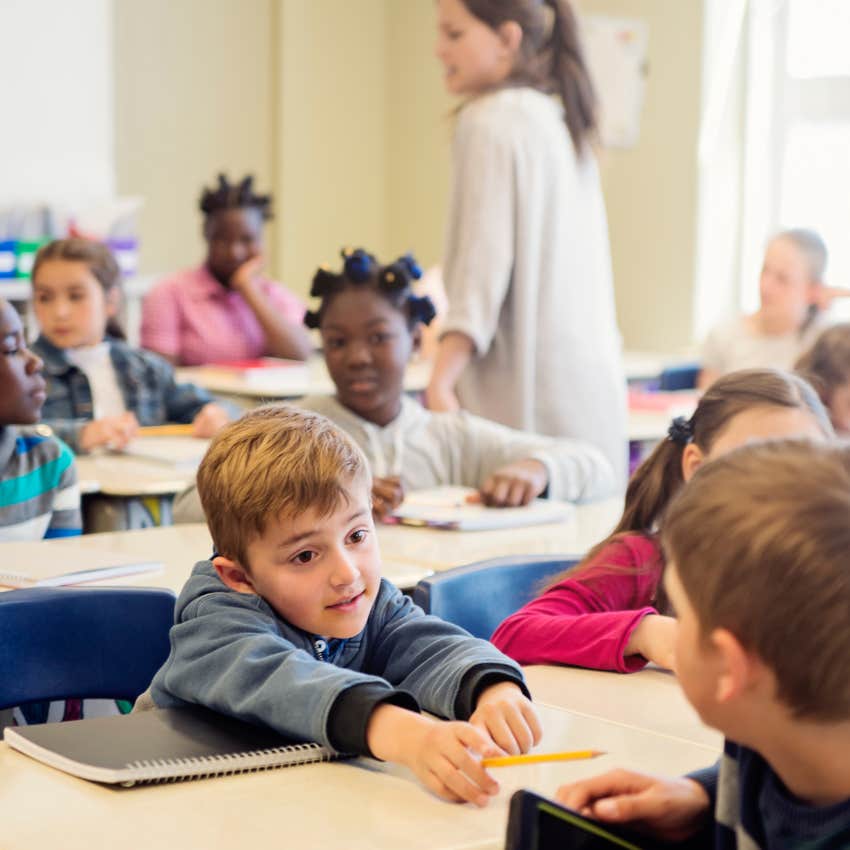Teacher Says The Problem With Kids Nowadays Has Nothing To Do With 2020 — ‘Your Kids Are Not Special’
It started long before that.
 FatCamera from Getty Images Signature / Canva Pro
FatCamera from Getty Images Signature / Canva Pro With a teacher crisis on the rise, a global pandemic and a socio-political world that grows more heightened each week, it’s not surprising that one of our most vulnerable populations is affected. Students across the country continue to return to classes and mingle with their peers in the midst of political turmoil, sickness and more.
So, is the rise of misbehavior in the classroom justified by their environment, or is there an entirely different theory to blame?
A teacher believes a modern culture shift is to blame for students’ bad behavior — not the global pandemic.
A teacher with 24 years in the classroom under her belt, Lisa Conselatore took to TikTok to express her frustration with modern-day students. Conselatore argued that the lockdowns of 2020 due to the pandemic are not to blame for the outrageously bad behavior of her students. Instead, she outlined a cultural shift that focuses on modern parenting as the cause.
Her take: Bad behavior in school is directly linked to parents raising their children to be the most “special person in every room.”
“I know your children are special to you,” said Conselatore, “but none of them are the most special person ever in the room … nobody is.”
Modern parenting approaches aim to increase child confidence, comfort, and communication skills.
Research shows that around 44% of parents have shifted their parenting approach to one that aligns with a more “modern parenting” strategy and away from what they received as children themselves. Many of those tactics focus on developing a unique sense of understanding and approval with their children — one that helps them feel more supported and loved in their identities.
Being that these approaches are shown to increase confidence levels in children, their expression of that confidence could be to blame for the epidemic of misbehavior the TikTok teacher emphasized. Oftentimes, confidence in children can manifest as misbehavior like interrupting, perceived selfishness, and “back-talk” in a school setting.
So, while Conselatore pushed away the notion of COVID-19 as the cause, she reverted to blaming an epidemic of selfishness — where students believe themselves to be the “most special” person in the classroom.
Alongside a perceived culture shift in parenting, many studies show that the COVID-19 pandemic has also greatly influenced students’ misbehavior.
Studies have shown that the pandemic has left a lasting impact on students across the country. From returning to in-person classes, dealing with familial sickness or loss, and social isolation, students have not been spared from struggle.
According to Mash M., a teacher on TikTok, students are grappling with an “elephant in the room” as they return to school — trauma from a global pandemic. With innumerable factors including students’ home life troubles, and socio-economic issues including access to technology, the global pandemic only caused more fear and anxiety in children's lives. In addition, a lack of resources, support, and training for teachers and other public school faculty often illuminated gaps in the effectiveness of online learning for students during the pandemic.
Studies about the impact of the COVID-19 pandemic on students found that almost 85% of public schools’ leadership agreed that the pandemic negatively impacted their students’ socio-emotional development. Alongside that, teachers documented 56% more classroom disruptions and 48% more disrespectful teacher interactions in post-COVID classrooms compared to prior to the pandemic.
The COVID-19 pandemic has caused burnout among teachers, parents, and students alike.
Whether parents are grappling with financial or social burnout — or grieving the loss of someone from the pandemic — they’re likely to affect everyone they interact with, including their children. Investigations into the effects of burnout show that parents are more likely to experience a decrease in familial bonds, lack of communication, and a sense of distrust with their children. Feeling unheard and unsupported, oftentimes children will resort to other social settings to seek approval from others.
 Photo: martinedoucet from Getty Images Signature / Canva Pro
Photo: martinedoucet from Getty Images Signature / Canva Pro
Studies from 2021 show that burnout is at an all-time high following the pandemic — with more people now dealing with the burden of anxiety, fear, and grief than in years prior. So, the pandemic-inflicted burnout is not just affecting parents, it’s affecting our whole society, including teachers and students. Intense trouble concentrating, lack of sleep, and repeated forgetfulness are all common themes between teachers and students in the wake of lockdowns.
So, while misbehavior may be on the rise between students, there’s no cut-and-dry root cause to explain the shift in classrooms. To have empathy (to students, parents, teachers, peers) is to have understanding.
Zayda Slabbekoorn is a news and entertainment writer at YourTango focusing on pop culture analysis and human interest stories.

